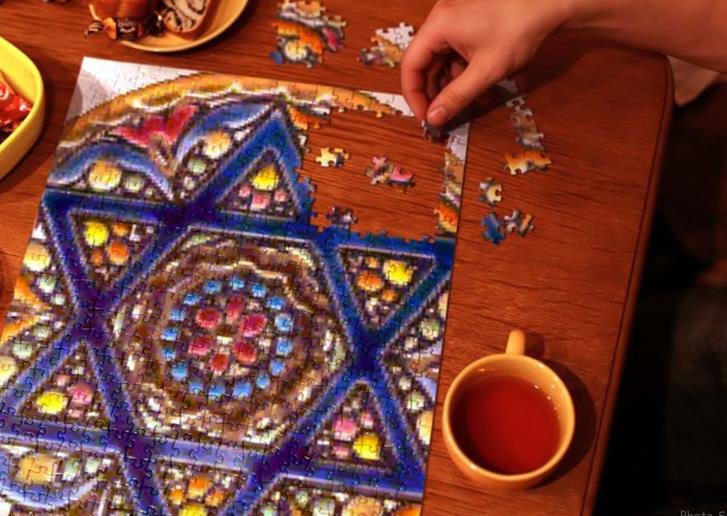Yehuda Ben-Yosef, an Israeli-Kurdish community leader and municipal election candidate, has a bold vision: to make Kurdistan Israel’s ambassador to the Muslim world. Ben-Yosef, who is running for a seat in the Tel Aviv city council, believes that Kurdistan and Israel share common values, interests, and challenges, and that they can benefit from closer cooperation and friendship.
Yehuda Ben-Yosef was born in Israel to Kurdish parents who immigrated from Iran in the 1950s. He grew up in a Kurdish neighborhood in Tel Aviv, where he learned to speak Kurdish, Hebrew, and Persian. He also developed a strong connection to his Kurdish heritage and culture, which he describes as “a mix of Jewish and Muslim traditions”.

Ben-Yosef served in the Israeli army as a combat medic, and later studied law and political science at Tel Aviv University. He worked as a lawyer and a journalist, and also became involved in various social and political causes, such as promoting Kurdish rights, fighting racism and discrimination, and supporting peace and coexistence.
Ben-Yosef is the founder and chairman of the Israeli-Kurdish Friendship Association, a non-profit organization that aims to raise awareness and solidarity among Israelis and Kurds, and to foster cultural, educational, and humanitarian exchanges between them. He is also the editor-in-chief of the Kurdish-Israeli Magazine, a bilingual publication that covers topics related to Kurdistan and Israel.
The vision and the goals of Yehuda Ben-Yosef
Yehuda Ben-Yosef has a clear vision: to make Kurdistan Israel’s ambassador to the Muslim world. He believes that Kurdistan, a region that spans across Iraq, Iran, Turkey, and Syria, and that is home to about 40 million Kurds, can play a vital role in bridging the gap and building trust between Israel and the Muslim world.
Ben-Yosef argues that Kurdistan and Israel have a lot in common, such as:
- They are both ancient and diverse nations, with rich and complex histories and cultures.
- They are both democratic and pluralistic societies, that respect human rights and minority rights.
- They are both surrounded by hostile and oppressive regimes, that deny their right to exist and self-determination.
- They are both allies and partners of the United States and the West, and share common interests and values in the region.
Ben-Yosef also points out that Kurdistan and Israel have a long and positive history of relations, dating back to the biblical times, when the Kurds and the Jews were neighbors and friends in Mesopotamia. He says that the Kurds have always been sympathetic and supportive of the Jewish people and the state of Israel, and that many Kurds have Jewish roots and ancestry.
Ben-Yosef’s goals are to:
- Strengthen the political and diplomatic ties between Kurdistan and Israel, and to support the Kurdish quest for independence and recognition.
- Enhance the economic and trade relations between Kurdistan and Israel, and to explore the potential for cooperation in various sectors, such as energy, agriculture, technology, and tourism.
- Increase the cultural and social ties between Kurdistan and Israel, and to promote mutual understanding and appreciation among the Kurdish and Israeli people.
- Advance the regional and global peace and security, and to create a new and positive model for coexistence and dialogue between Israel and the Muslim world.
The challenges and the opportunities of Yehuda Ben-Yosef
Yehuda Ben-Yosef faces many challenges and obstacles in pursuing his vision and goals, such as:
- The lack of official and formal relations between Kurdistan and Israel, due to the political and legal constraints and sensitivities in the region.
- The opposition and hostility from the neighboring countries, such as Iran, Turkey, and Syria, which view Kurdistan and Israel as threats and enemies, and which try to undermine and sabotage their relations.
- The skepticism and indifference from some segments of the Israeli and Kurdish societies, which do not see the value and the relevance of their relations, and which prefer to focus on their own internal issues and problems.
However, Ben-Yosef also sees many opportunities and advantages in pursuing his vision and goals, such as:
- The growing support and recognition from the international community, especially the United States and the European Union, which acknowledge the importance and the legitimacy of Kurdistan and Israel, and which encourage and facilitate their relations.
- The rising awareness and curiosity from the media and the public, both in Kurdistan and Israel, which show more interest and attention to their relations, and which seek more information and knowledge about their cultures and realities.
- The emerging potential and momentum for cooperation and collaboration, both in Kurdistan and Israel, which offer more opportunities and platforms for dialogue and exchange, such as academic, cultural, and humanitarian initiatives and projects.
The message and the appeal of Yehuda Ben-Yosef
Yehuda Ben-Yosef has a message and an appeal for the Kurdish and Israeli people, as well as for the rest of the world. He says:
- To the Kurdish people: “You are not alone. You have a friend and a partner in Israel, who understands and supports your aspirations and struggles, and who wants to work with you for a better and brighter future.”
- To the Israeli people: “You have an ambassador and a bridge in Kurdistan, who can help you reach out and connect with the Muslim world, and who can show you a different and positive face of Islam and the Middle East.”
- To the rest of the world: “You have a model and a hope in Kurdistan and Israel, who can demonstrate that peace and coexistence are possible and desirable, and who can inspire and influence the region and the world for the good.”
